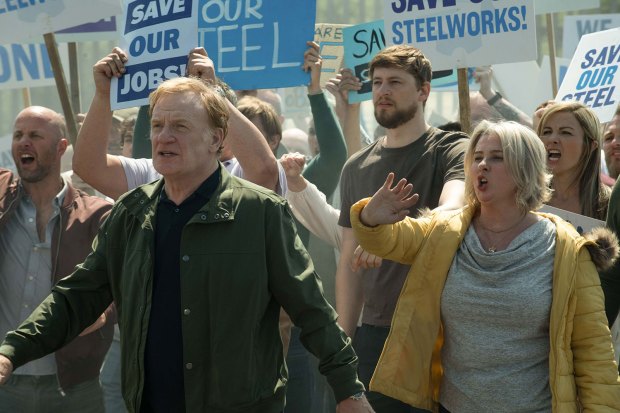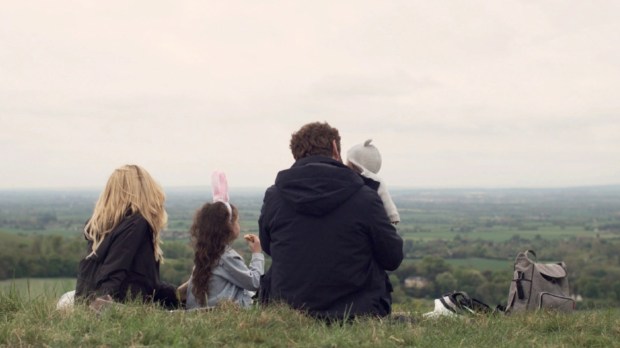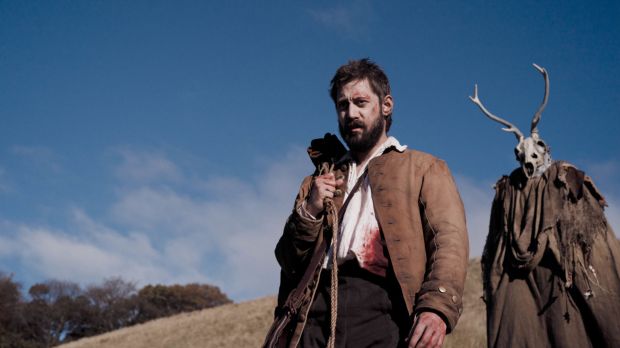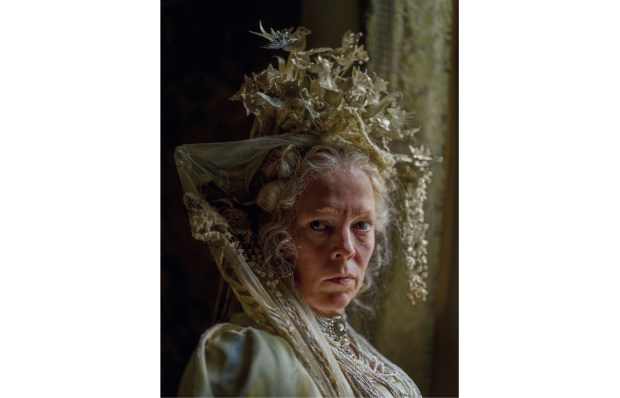It’s a radical thought I know, but I sometimes wonder what it would be like if a new TV thriller began by carefully introducing the characters and basic situation, before proceeding chronologically from there. In the meantime, though, there’s BBC1’s The Cry, which didn’t just start with the traditional blizzard of time-shifts, but continued like that for the next hour.
In one of the more prolonged of Sunday’s many opening scenes — it lasted at least 60 seconds — main character Joanna (Jenna Coleman) explained to an unseen listener that ‘that’s when this began, with two faces’. When the scene was replayed 55 minutes later, we discovered that she was talking to a psychiatrist, but still had no idea what the ‘two faces’ were — and couldn’t even be entirely sure what the ‘this’ referred to. From the occasional moments of courtroom drama and the intermittent sightings of a mob demonstrating against her, we do know that Joanna’s on trial for something that’s presumably connected to the disappearance of her baby towards the end of the episode. But exactly what she’s supposed to have done — along with when, how and why — remains impeccably unclear.
Of course, it’s not unknown for TV dramas to jump about like this in a cunning bid to disguise the fact that what we’re watching is a completely bog-standard thriller. Here, however, the constant changes of perspective are not only intriguing in themselves; they also back up the programme’s central theme of how readily we simplify people in the news for the purposes of easy judgment by reminding us how annoyingly harder that judgment becomes once we know more about their lives.
At this stage, in fact, the one consistently readable character is baby Noah, who’s stuck to crying a lot, thereby shredding Joanna’s nerves and making her feel like a rubbish mother. Isolated from her old friends and resentful of other new (apparently omnicompetent) mums, she has to rely just on her Australian fiancé Alistair, whose job as a spin doctor possibly signifies that reliability mightn’t be his key attribute.
And that was before his own troubles were scattered into the time-shifting mix. Alex, the wife he didn’t tell Joanna about when their relationship started, has gone back to Australia taking their teenage daughter with her — and merely because she walked in on her husband and his new love in the marital bedroom. Now he wants his daughter back and so has flown to Australia with Joanna and Noah on a quest to prove that Alex is an unfit mother (which she might be). Twenty-four hours on a plane with a crying baby was duly a nightmare — although mostly for Joanna who had to defend herself against her fellow passengers while Alistair got a spot of shut-eye. Then driving through rural Victoria, they popped into a supermarket and came out to find that Noah was no longer in the car.
Keeping us so determinedly in the dark is a high-risk strategy for any thriller, and this one has the inadvertently added problem of occupying the slot vacated by Bodyguard (about which, I think we can now admit, the country got a bit overexcited: ironically, perhaps because of the same mob mentality that The Cry is out to skewer). Nonetheless, this was a highly accomplished and tantalising opener. Certainly I can’t think of many series where I’ve been so keen to find out what happens next, without really knowing what’s happening now.
To my shame — as it might well mean that I’ve been lazily going along with the prevailing wisdom about Ben Elton’s sad decline — it’s taken me a while to realise how good his BBC2 sitcom Upstart Crow is. The show does owe a fairly big debt to the last three series of Blackadder, co-written by Elton with Richard Curtis when the two were in their critically acclaimed pomp. Once again, the protagonist — in this case William Shakespeare (David Mitchell) — is essentially a contemporary of ours who has to negotiate his way through the various weirdnesses of the past. Yet once again, too, the jumble of old and new (including the language) somehow manages to be coherent as well as funny, smart and winningly satirical about both eras.
But Wednesday’s final episode of the latest series had another obvious Blackadder influence because, as in Blackadder Goes Forth, Elton chose to end on a note of tragedy. Admittedly, the result this time didn’t achieve quite the same devastating effect (although in its defence, few shows ever have done), with the tragedy appearing out of the blue, rather than gradually becoming inevitable as the comedy darkened. Nevertheless, it still packed a genuine emotional punch — not least because I’m pretty sure that this was the first sitcom in television history to end with a heartbreaking speech from King John.
Got something to add? Join the discussion and comment below.
Get 10 issues for just $10
Subscribe to The Spectator Australia today for the next 10 magazine issues, plus full online access, for just $10.
You might disagree with half of it, but you’ll enjoy reading all of it. Try your first month for free, then just $2 a week for the remainder of your first year.













Comments
Don't miss out
Join the conversation with other Spectator Australia readers. Subscribe to leave a comment.
SUBSCRIBEAlready a subscriber? Log in